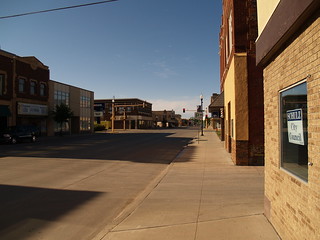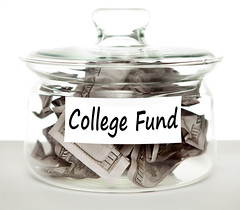Read just about any personal finance article on saving and you’re likely to also read something about certificates of deposit. Heck, I’ve covered what a certificate of deposit is, how to create a CD ladder, and mentioned CDs several other times. But, as much of a mainstay as they are in the typical savings mantras, are they still a valuable tool for savings?
Recent economic changes have certainly not been kind to many of us, and our methods of savings haven’t been treated well either. The interest rates on savings accounts is terrible. My local credit union doesn’t pay enough to even make it worth my while. And online savings banks that used to be the poster children of high-yield accounts are paying less than 1%. It wasn’t that long ago that a 5 year CD would have been paying 6-7%. Now? Closer to 1%, even at the online banks. My local credit union is paying 0.25% on a 12-month. (they apparently either don’t offer 5 year, or they don’t post the rates for them)
There are still some good rates out there though, if you take the time to look. Well, better rates than what some are offering. In the current economic situation, you can’t ask for much. Click here to read more information on one such certificate of deposit. But, even with rates that are closer to 2%, are they worth your time? If we assume that the rate of inflation is somewhere around 3%, (I think it’s higher) aren’t you losing money by only earning 2% on the CD? Yes and no. If the money would just be sitting around in a savings account and making little to no interest, the CD at near 2% would be better than nothing. Literally.
So, back to the question at hand. Are CDs still a valuable tool for savers? The answer, again, is yes and no. No, because they aren’t the best tool. There are other ways for you to make your money work for you. They all make better returns than you would with a CD. However, they all carry some caveat that you have to know about if you’re going to use them. In many cases, the risk is higher. Investing the money in stocks, or in something like Lending Club can get you much higher returns, but the risk is also much higher. Investing the money into real estate, while a good passive income idea, is also a higher risk investment, plus the money is locked away in a non-fluid investment. Treasury bonds can have higher returns, but often only at the cost of tying the money up for a long time.
If there are so many higher yielding investments to make, why are CDs still sometimes a valuable tool for savers? There’s two really good reasons. The first is that the money is not tied up for very long. Even if you purchase a 5 year CD, you can still cash the CD out and only pay a small fee. That fee is usually something like 3 months of interest. As long as you’ve held the CD 3 or more months before cashing it out, you don’t lose any money. So, the money remains pretty fluid. The second reason is that a CD is an ultra secure investment. That’s also why the rates are lower. A CD is what is called a secured investment. You deposit (hence it’s name, certificate of deposit) an amount of money into the account, and agree to leave it there for a certain period of time (the term of the CD) in exchange for a guaranteed return rate. There’s very little risk at all. Even if the bank you open the CD at goes bankrupt, you’ll be covered by the FDIC or NCUA insurance.
While I wouldn’t suggest putting a huge chunk of your retirement into CDs, (unless you’re nearing retirement) I would suggest putting something like your emergency savings into them. They’re also a good tool for squeezing a bit more interest out of a new car savings, or a similar savings that has a mid-range use date. Just pick a CD with a term shorter than the length of time you’ll be saving up to avoid any extra penalties.
CDs don’t offer the greatest rates, that is for sure. But, their lack of risk, and higher fluidity make them great for short and mid range savings. And that makes them a mostly valuable tool for savers. You just have to know where and when to use them. Just like any other tool.
Do you agree? What savings would you use a CD for?

I started this blog to share what I know and what I was learning about personal finance. Along the way I’ve met and found many blogging friends. Please feel free to connect with me on the Beating Broke accounts: Twitter and Facebook.
You can also connect with me personally at Novelnaut, Thatedeguy, Shane Ede, and my personal Twitter.

 Now, let me tell you something that will knock your socks off. At least, it will if you live in one of those bigger cities. Me and my family of 4 (+1 dog) do just fine on less than $70,000 a year. We’re not extremists, living in a small trailer in a campground somewhere, eating only rice and beans all the time either. Could we survive on less? I know we could. We have debt; student loans, car loans, medical bills, a mortgage, and your regular monthly utilities and such. But, the cost of living here makes it not only doable, but affordable to live on that amount.
Now, let me tell you something that will knock your socks off. At least, it will if you live in one of those bigger cities. Me and my family of 4 (+1 dog) do just fine on less than $70,000 a year. We’re not extremists, living in a small trailer in a campground somewhere, eating only rice and beans all the time either. Could we survive on less? I know we could. We have debt; student loans, car loans, medical bills, a mortgage, and your regular monthly utilities and such. But, the cost of living here makes it not only doable, but affordable to live on that amount.